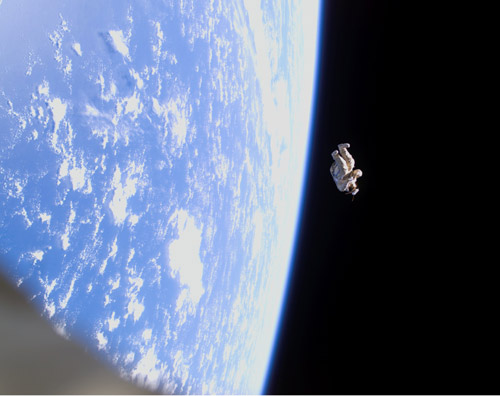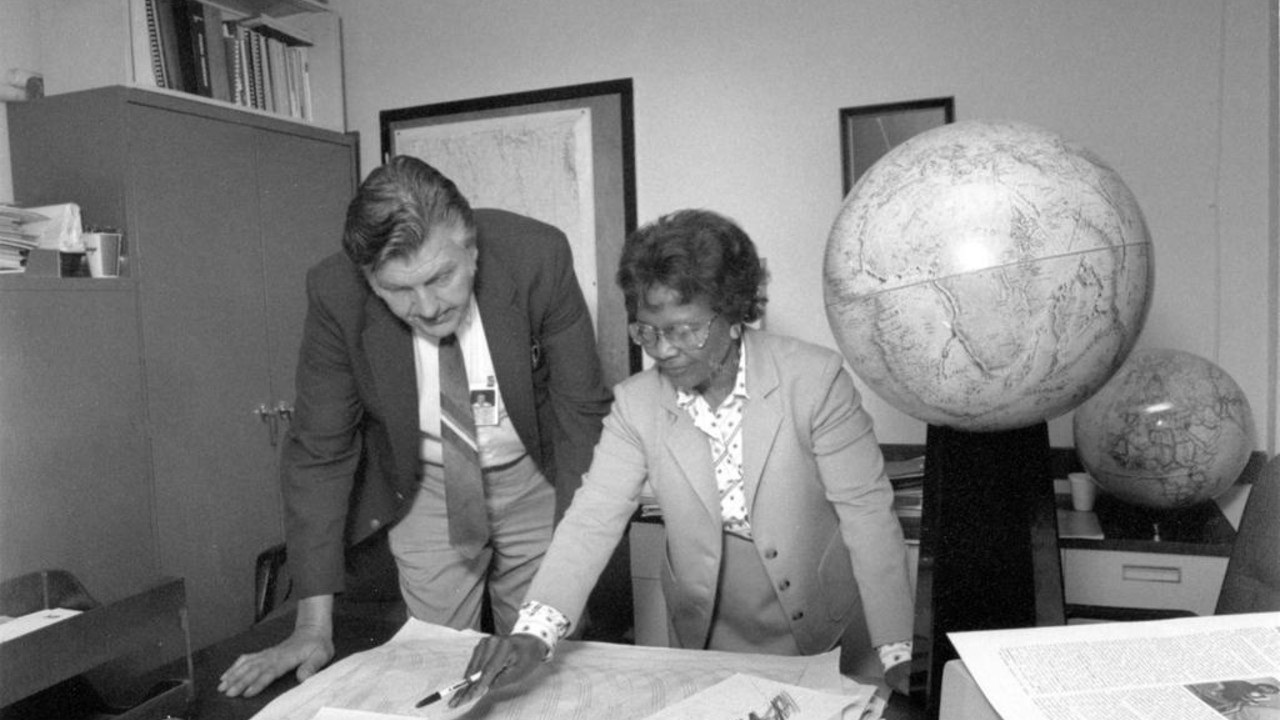SuitSat Signal Continues to Survive

An unmannedspacesuit drifting in Earth orbit is still pumping out a weak radio signalmore than 10 days since astronauts tossed it from the International SpaceStation (ISS), NASA officials said Tuesday.
ISSExpedition 12 commander Bill McArthur and flight engineer Valery Tokarev hurledthe Russian-built Orlanspacesuit, an expired garment packed with clothes and a radio transmitter,into a temporary orbit during a Feb. 3spacewalk.
With theexception of one prematurepronouncement of silence, the spacesuit - dubbed SuitSat byNASA officials and RadioSkaf by their Russian counterparts - continues to sendout a weak signal.
"Thebattery that powered the suit is lasting longer than originally predicted,"NASA spokesperson James Hartsfield said Tuesday during the agency's daily spacestation commentary.
ISS flightcontrollers initially hoped SuitSat would send its message - an image andgreetings in five languages - and telemetry for about 10 days, allowing hamradio operators and students a chance to track the target. The spacesuit itselfis expected to burn up in the Earth's atmosphere a few weeks after deployment.
Theconsistently weak signal may have allowed SuitSat's batter to last longer thanexpected, Hartsfield said.
- Lonely Ivan
- So Long, SuitSat: Astronauts Launch Spacesuit in Second Spacewalk
- Overboard: The Suit Behind the Sat
Breaking space news, the latest updates on rocket launches, skywatching events and more!

Tariq is the award-winning Editor-in-Chief of Space.com and joined the team in 2001. He covers human spaceflight, as well as skywatching and entertainment. He became Space.com's Editor-in-Chief in 2019. Before joining Space.com, Tariq was a staff reporter for The Los Angeles Times covering education and city beats in La Habra, Fullerton and Huntington Beach. He's a recipient of the 2022 Harry Kolcum Award for excellence in space reporting and the 2025 Space Pioneer Award from the National Space Society. He is an Eagle Scout and Space Camp alum with journalism degrees from the USC and NYU. You can find Tariq at Space.com and as the co-host to the This Week In Space podcast on the TWiT network. To see his latest project, you can follow Tariq on Twitter @tariqjmalik.
